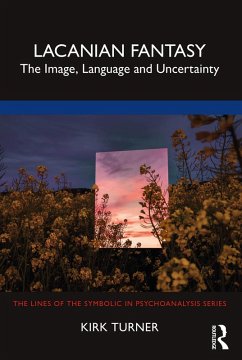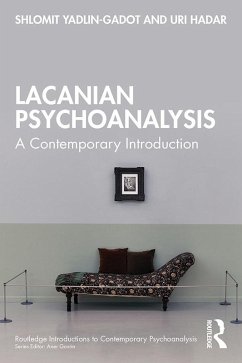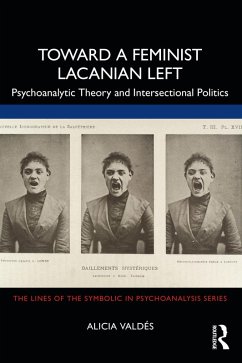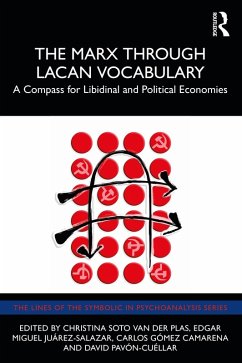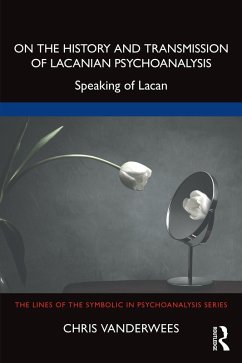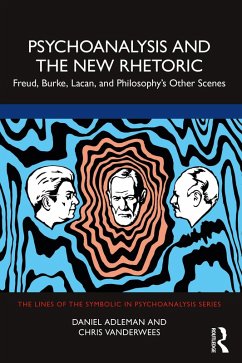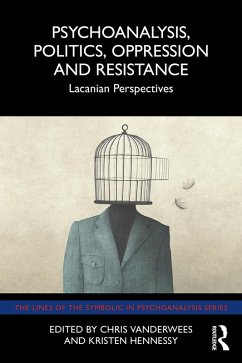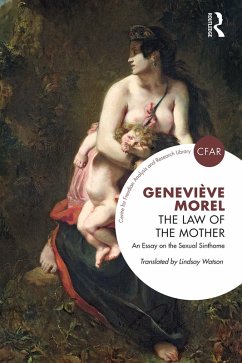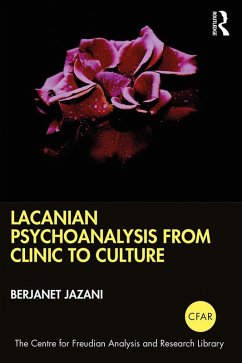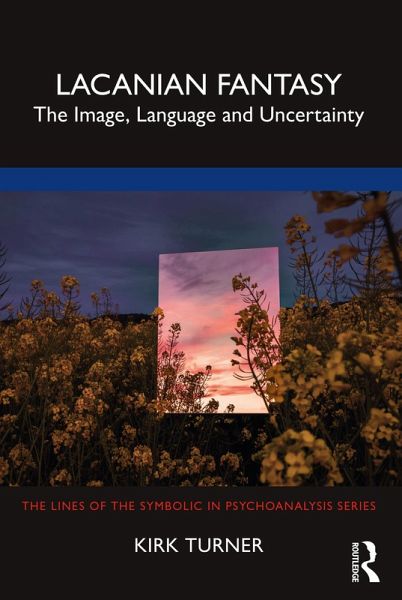
Lacanian Fantasy (eBook, PDF)
The Image, Language and Uncertainty
Versandkostenfrei!
Sofort per Download lieferbar
32,95 €
inkl. MwSt.
Weitere Ausgaben:

PAYBACK Punkte
16 °P sammeln!
Lacanian Fantasy addresses the question of how fantasy developed as a psychological concept, particularly as influenced by Sigmund Freud and Jacques Lacan.Kirk Turner moves thematically, from childhood to adulthood, and chronologically, from Freud's earliest theories to Lacan's most complex statements on fantasy towards the end of his career. He explores not only the variations that the concept has undergone throughout its history - from Ancient Greek discourse around phantasia to the present day - but also the changing consequences of its applications. Lacanian Fantasy includes further insigh...
Lacanian Fantasy addresses the question of how fantasy developed as a psychological concept, particularly as influenced by Sigmund Freud and Jacques Lacan.
Kirk Turner moves thematically, from childhood to adulthood, and chronologically, from Freud's earliest theories to Lacan's most complex statements on fantasy towards the end of his career. He explores not only the variations that the concept has undergone throughout its history - from Ancient Greek discourse around phantasia to the present day - but also the changing consequences of its applications. Lacanian Fantasy includes further insights on our current predicament: the age of the social media image and fantasy in the uncertain 'locked down' world of a pandemic. Spanning numerous examples, both historical and recent, this book explores relatable forms of fantasy life. In bridging psychology and philosophy, as well as gender and sexuality studies, it ultimately opens new perspectives on fantasy.
This book will be of interest to psychoanalytic practitioners and humanities scholars, as well as students interested in critical theory.
Kirk Turner moves thematically, from childhood to adulthood, and chronologically, from Freud's earliest theories to Lacan's most complex statements on fantasy towards the end of his career. He explores not only the variations that the concept has undergone throughout its history - from Ancient Greek discourse around phantasia to the present day - but also the changing consequences of its applications. Lacanian Fantasy includes further insights on our current predicament: the age of the social media image and fantasy in the uncertain 'locked down' world of a pandemic. Spanning numerous examples, both historical and recent, this book explores relatable forms of fantasy life. In bridging psychology and philosophy, as well as gender and sexuality studies, it ultimately opens new perspectives on fantasy.
This book will be of interest to psychoanalytic practitioners and humanities scholars, as well as students interested in critical theory.
Dieser Download kann aus rechtlichen Gründen nur mit Rechnungsadresse in A, B, BG, CY, CZ, D, DK, EW, E, FIN, F, GR, HR, H, IRL, I, LT, L, LR, M, NL, PL, P, R, S, SLO, SK ausgeliefert werden.




